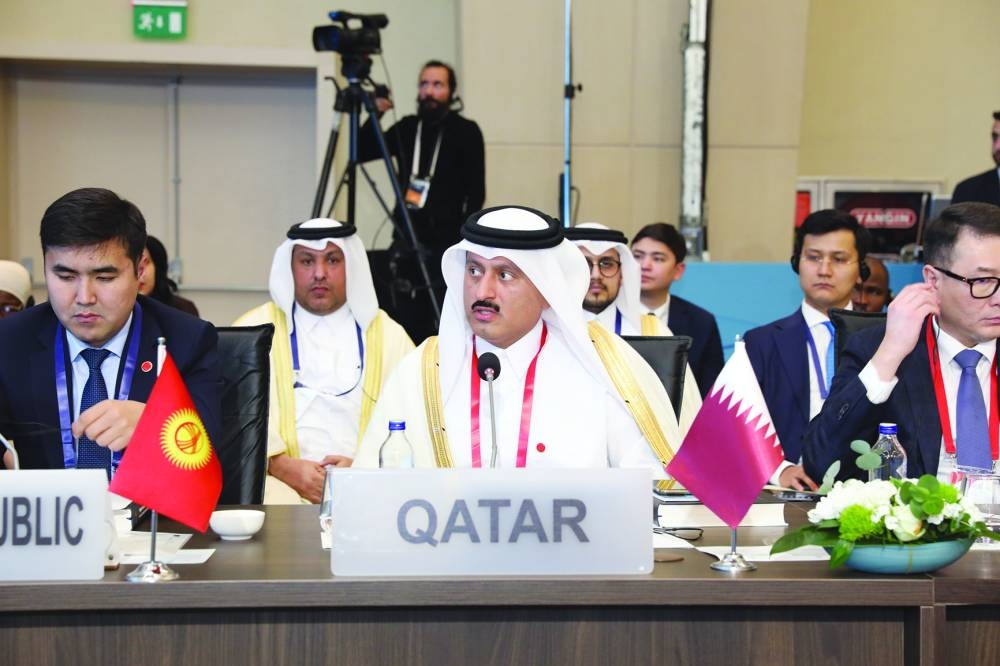Qatar has suggested further consolidation of economic and commercial co-operation among Islamic countries for enhancing the share of intra-trade to 25% by 2025.
Addressing the ministerial session of the Standing Committee for Economic and Commercial Co-operation of the Organisation of the Islamic Co-operation (COMCEC) in Turkiye, Sultan bin Rashid al-Khater, undersecretary of the Ministry of Commerce and Industry (MoCI), highlighted the "significant" geostrategic challenges, influencing the global economic landscape, which require close collaboration within the Islamic community.
He stressed on the need for the consolidation of economic and commercial co-operation under COMCEC, which was established in 1981 and operates as the foremost platform for nurturing multilateral economic and commercial cooperation within the Islamic world, to propel collective Islamic initiatives forward and support intra-trade relationships among the member states of the organisation.
The MoCI official expressed hope that the meeting will support the launch of initiatives and the establishment of a shared understanding to facilitate the active involvement of all member states, encompassing the implementation of the ten-year plan of action of the Organisation of Islamic Co-operation (OIC) to elevate the proportion of intra-trade to 25% by 2025.
Al-Khater emphasised that Qatar has achieved success through its long-standing economic diversification strategy, aligning with the national vision 2030.
"This strategy has been essential in enhancing vital economic sectors, encouraging entrepreneurship, and supporting the small and medium enterprises sector, positioning Qatar as one of the world's strongest economies," he added.
Qatar's participation in the meetings of the COMCEC reflects its commitment to continuous cooperation and the consolidation of bilateral relations with all the organization's member states.
The session included a comprehensive discussion on the implementation report of the COMCEC strategy. Additionally, the OIC implementation plan 2016-25 (OIC-2025: Programme of Action) was discussed, with the OIC general secretariat presenting a detailed report on the progress achieved and recent developments.
The meeting covered global economic developments, focusing on member states of the OIC. It addressed several critical topics, as the development of financial cooperation among member states, enhancements in transport and communications infrastructure, efforts aimed at the development of the tourism sector, initiatives to boost agricultural production, ongoing measures to ensure food security, and collaborative endeavours in digital transformation.
Furthermore, participants exchanged views on strategies to enhance e-commerce in the countries of the Islamic world.
The Islamic Chamber of Commerce, Industry, and Agriculture presented a comprehensive report outlining recent developments from the private sector meetings.
Business
Qatar calls for consolidation of commercial co-operation of Islamic countries for boosting intra-trade

Sultan bin Rashid al-Khater, undersecretary of the Ministry of Commerce and Industry, has stressed the need to consolidate economic and commercial co-operation among Islamic countries for enhanced intra-trade.
